Deb Spalding (Please note, photos taken by The Catoctin Banner during the banquet were corrupt and therefore were not usable. Our apologies for this.
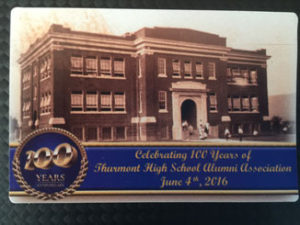 Graduates of Thurmont High School (THS) gathered on June 4, 2016, at the Lewistown Fire Hall, to celebrate the school’s 100th Anniversary during a banquet that was hosted by the school’s alumni association.
Graduates of Thurmont High School (THS) gathered on June 4, 2016, at the Lewistown Fire Hall, to celebrate the school’s 100th Anniversary during a banquet that was hosted by the school’s alumni association.
The banquet was well attended by over 270 people, who were seated at long tables with graduation years indicated on table plaques. Mark Widmyer, representing the governer’s office, issued a Governor’s Citation in recognition of Thurmont High School’s 100th anniversary. Margaret Nusbaum, representing county executive Jan Gardner, also presented a citation.
The Lewistown Volunteer Fire Company served a buffet meal. Special music was performed by Neal Coty (Angleberger), a 1982 Catoctin High School graduate, who is now a singer-song writer and lives in Nashville, Tennessee. The National Anthem was performed by Taylor Zentz, a 2015 graduate of Catoctin High School and a THSA scholarship recipient.
The oldest graduate in attendance was Donald Lewis, a graduate of the THS class of 1935, former Mayor of Thurmont, former Frederick County Commissioner, retired local business owner, World War II Veteran, and instrumental in the formation of the THS Alumni Scholarship Fund.
Master of Ceremonies and Thurmont High School Alumni Association president, Bill Eyler, acknowledged Lewis by expressing appreciation for his service to the community and thanked him personally for sponsoring him in the Brotherhood of the Jungle Cock fishing organization as a youngster, fifty years ago.
Richard Shinn traveled the farthest, from California, for the reunion. The youngest graduate in attendance was Herman Beall, Jr., who was awarded a certificate to a youth spa.
Becky Linton created the 100th anniversary booklet with the help of contributors, John Kinnaird, Dennis Black, William Eyler, Gladys Baker, Eugene Myers, the Town of Thurmont, and Georgette Stitely. If you would like a copy of the booklet, please call Becky at 301-696-0467.
Former teachers at THS were in attendance: Jane and Paul Nolan, Donna Fisher, and Mary Fisher.
Donna Fisher taught math and physical education at THS, from fall 1951 until June 1954. “Anytime I see one of my former students, it’s very special to me,” expressed Fisher.
Mary Fisher taught English at THS from 1950 to 1956. Eugene Martin (Class of 1953) said he was Mrs. Fisher’s “favorite student.”
Anniversary classes included the classes of 1946, 1951, 1956, 1961, and 1966. Some of the anniversary class members spoke.
The class of 1951 had forty-nine students in their graduating class; thirty-two are deceased, and six were in attendance. Their class colors were pink and white, and their class flower was the carnation.
The class of 1961 had sixty-one graduates with ten in attendance; their class motto was, “Today we follow, tomorrow we lead.” Their class flower was the forget-me-not, and their class color was bright blue and white.
The class of 1956 had forty graduates, with twenty-three deceased; their class flower was the pink and white carnation, and their class motto was,“Strive forward.”
The class of 1966 had one hundred and two people in their graduating class; they shared the class motto, “Knowledge= Happiness=Success.”
Alumni officers for the upcoming year include Don Dougherty (Class of 1969), president; Becky Linton (Class of 1958), treasurer; and Viola Noffsinger (Class of 1958), secretary. Individuals are sought to fill the positions of vice president and assistant secretary.
The 2016 scholarship recipients were Kathleen Barnes, Marlee Dinterman, and Josie Estep. This scholarship fund is managed by the Community Foundation of Frederick County.
Next year’s alumni banquet will be held on June 3, 2017. Anniversary years ending in “2” and “7” will be honored.
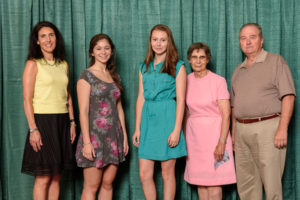
Scholarship awards are a big part of the Thurmont High School Alumni Association’s Mission. Recipients are shown during the Frederick Community Foundation banquet. Pictured left to right are Cynthia Palmer, Immediate Past Chairman of the Community Foundation, Josie Estep, scholarship recipient, Kathleen Barnes, scholarship recipient, Viola Noffsinger, secretary of the Thurmont High School Alumni Assn., & Don Dougherty, President of the Thurmont High School Alumni Assn. Marlee Dinterman, scholarship recipient was absent

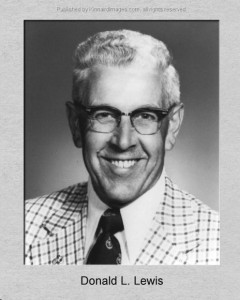
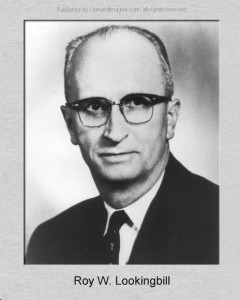
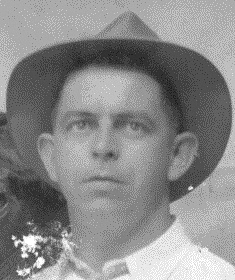
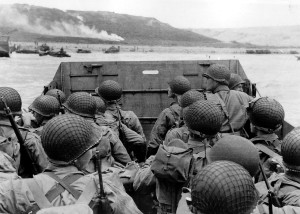 Donald Lewis stood crammed among a group of friends and fellow soldiers, trying not to lose his balance. The landing craft they were on was pushing toward its destination on Omaha Beach at Normandy, France. A strong current threatened to pull them away from their destination.
Donald Lewis stood crammed among a group of friends and fellow soldiers, trying not to lose his balance. The landing craft they were on was pushing toward its destination on Omaha Beach at Normandy, France. A strong current threatened to pull them away from their destination.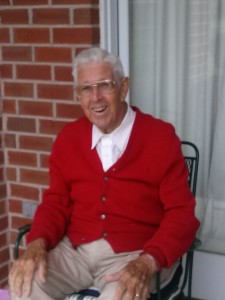 Lewis also had a political career. He served two terms as Mayor of Thurmont and one term as a Frederick County Commissioner. He said a group of people tried to talk him into running for governor, but he turned them down, saying, “I’m too honest for that.”
Lewis also had a political career. He served two terms as Mayor of Thurmont and one term as a Frederick County Commissioner. He said a group of people tried to talk him into running for governor, but he turned them down, saying, “I’m too honest for that.”